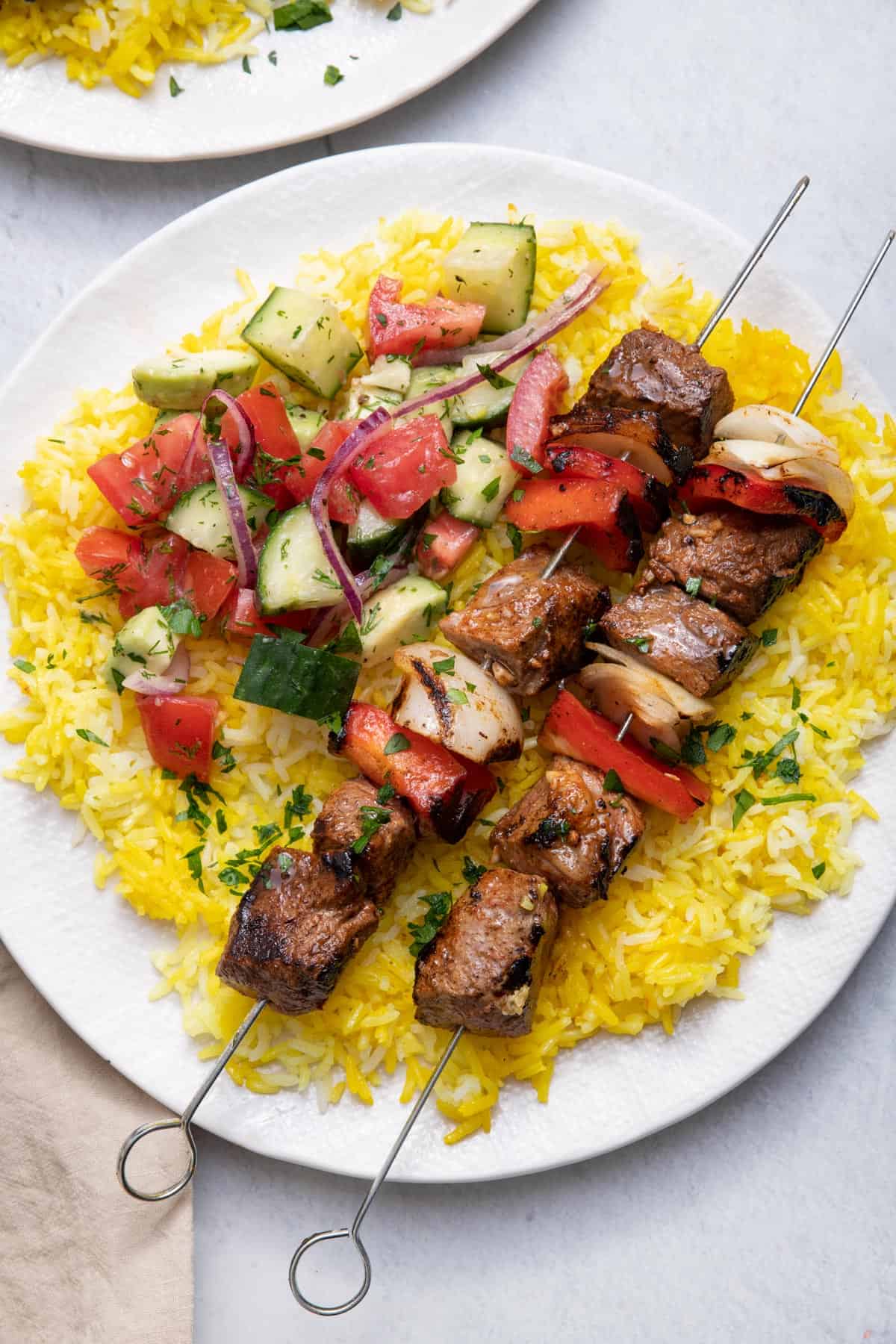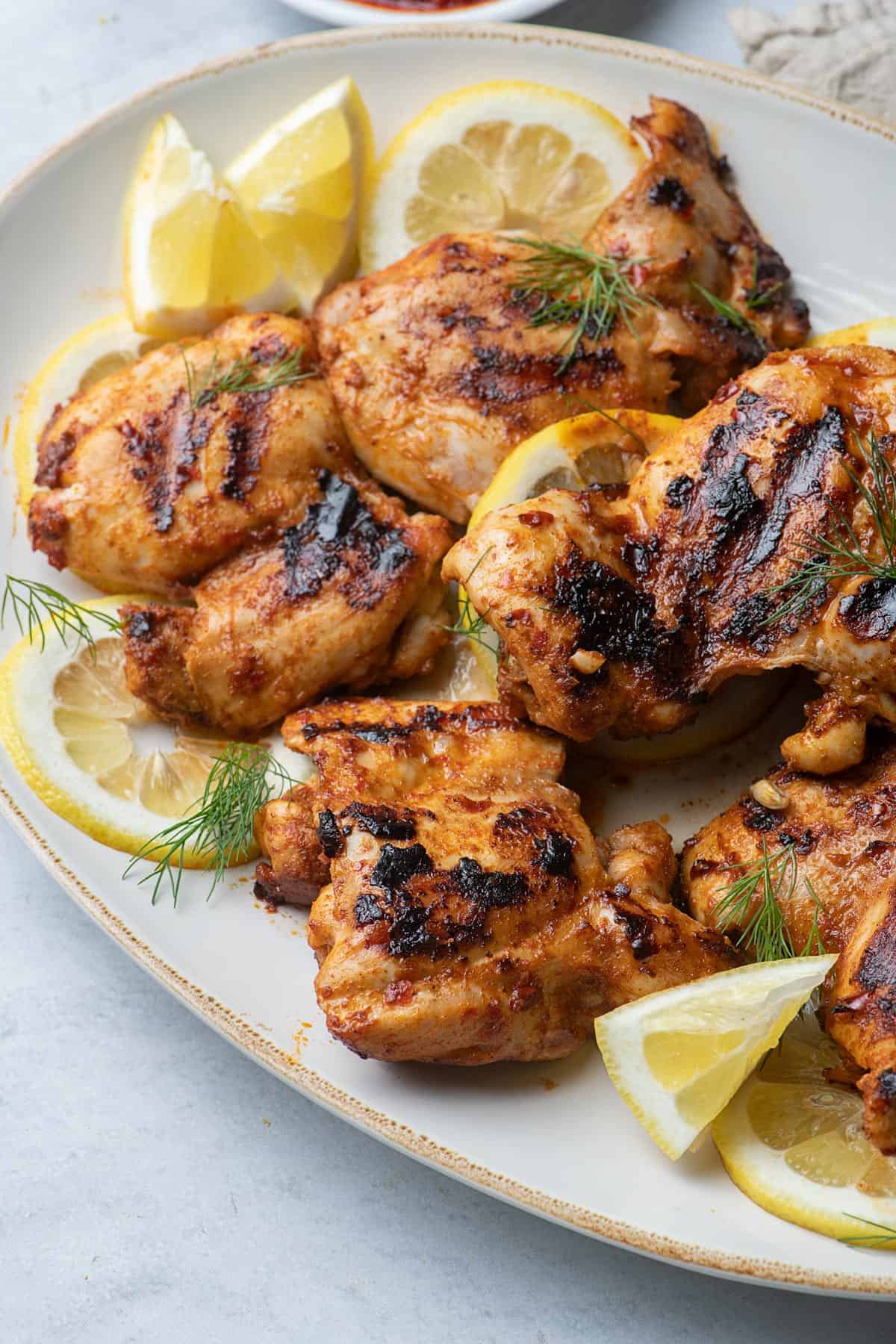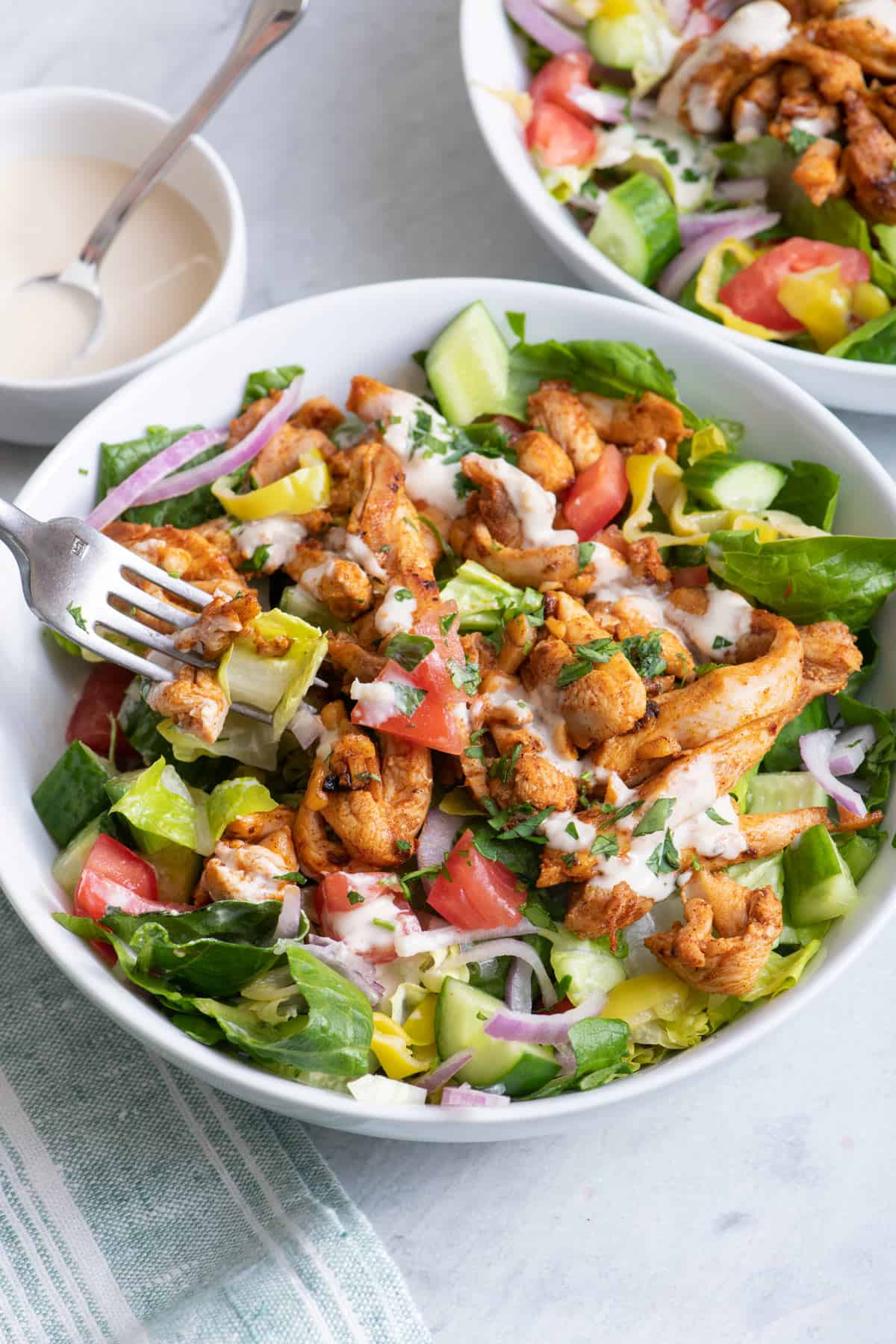What is Halal Food?
Published Mar 29, 2023
Discover what Halal food is, its significance, and the guidelines. Explore the benefits and reasons to follow a Halal diet and why Muslims eat halal meat.
This post may contain affiliate links. Please read our disclosure policy.
As-salamu alaykum! Let’s explore the world of Halal food and meat to understand what it truly entails. Although the term generally means what is acceptable and lawful in the context of Islamic teachings and a way of life, when it comes to food, it specifically refers to what Muslims are permitted to eat based on Islamic dietary laws.

So, whether you’re a devout Muslim or just curious about this aspect of Islamic culture, understanding Halal principles will surely deepen your appreciation for its rich traditions and delicious food.
What does halal mean
The principles of Halal are rooted in the Quran, the holy book of Islam, and the Hadith, the teachings and sayings of Prophet Muhammad. The guidelines outline what foods are pure and clean and what foods should be avoided.
What makes food halal
Halal food is all about how it is prepared and produced. These guidelines encompass a range of factors, including the method of slaughter, the source of ingredients, and the use of certain additives and flavorings. Halal food is an important aspect of Islamic faith and is a key consideration for many Muslims when making food choices.
Even so, you can find Halal food all over the world, and tons of restaurants and grocery stores specialize in Halal cuisine. Some popular dishes include kebabs, biryani, falafel, and shawarma. And let me tell you, they’re all delicious and nutritious.
Traditional Lebanese halal recipes
- Tabbouleh Salad
- Baked Kibbeh
- Harissa Grilled Chicken
- Fattoush Salad
- Chicken Shawarma
- Chicken and Beef Kafta
- Sayadieh
- Lebanese Falafel
- Couscous with Shrimp
- Grilled Beef Kabobs
Halal meat
Halal meat is meat prepared in accordance with Islamic dietary laws, also known as dhabiha guidelines. In order for meat to be considered Halal, it must:
- Come from an animal that has been slaughtered in a specific way, which involves cutting the throat with a sharp knife while reciting a prayer.
- The animal must also be healthy and alive at the time of slaughter, and it should be treated with respect and compassion throughout its life.
This practice is to ensure that the animal feels as little pain as possible and that its blood is fully drained from the body, which is believed to make the meat healthier and more flavorful. A variety of animals, including cows, chickens, goats, and sheep, are good choices for halal meat.
While it is an important part of the Islamic faith, many people from other religions and cultures also choose to eat Halal meat due to its emphasis on ethical and sustainable practices, such as the humane treatment of animals and adherence to strict hygiene standards.

Halal vs. Kosher
Halal and kosher are dietary guidelines stemming from religious traditions, with halal being an Islamic concept and kosher being Jewish. Both practices determine what types of food and beverages are considered okay and not okay to eat. This includes:
- the treatment and slaughter of animals
- not eating pork, or meat with blood
- not consuming alcohol
Is seafood halal?
All seafood is halal! That really widens the possibility of what you eat and recipes you can make. Shrimp, fish, scallops, you name it. Check out some of my favorite seafood recipes!
Is vegan food Halal?
Vegan food is generally considered halal food as it doesn’t include animal products. There are still foods that are haram that can be found in vegan food, such as alcohol, so you can determine if the recipe falls under the halal guidelines and make adjustments where needed.
Is vegetarian food halal?
Vegetarian food can be either halal or haram (forbidden), depending on how it is prepared and the ingredients used. A recipe can start off halal, but if you throw in an ingredient that’s not or uses a non-halal method of preparation, then it would likely be haram.
One example is when specific vegetarian foods that contain dairy products are produced using animal rennet and can be a bit of a gray area, such as parmesan cheese.
Frequently asked questions
There are certain types of meat, such as pork, carnivorous animals, and reptiles, that are haram and not considered halal. Any foods that contain alcohol or carrion (decaying flesh and animals that feed on it) are also not halal.
It may taste a little cleaner and less gamey, but is similar in taste to other meat. The texture may be more tender and juicy.
Check your ethnic aisles at your grocery store, or even better is to visit a Middle Eastern or Mediterranean market. Some items are labeled with a symbol to note that they are halal, and other foods, such as produce and grains, are naturally halal.

Eating halal is all about clean, wholesome, and nourishing food; whether for religious or personal reasons, you can enjoy the many benefits of eating food that’s good for your body and the environment.
FOR MORE COOKING GUIDES:
- How to Stock your Pantry
- How to Stock a Freezer
- Food Storage Tips
- How to make your kitchen more efficient
If you find this guide on What is Halal Food helpful, I’d love to hear from you! And if you snapped some shots of any of these tips and tricks or recipes with protein powder, please share it with me on Instagram so I can repost on my stories!






Hi! I use your recipes all the time and now I’m finding out you’re muslim too, I love that!
Yes, I am!! Thanks so much for the support, Maria!